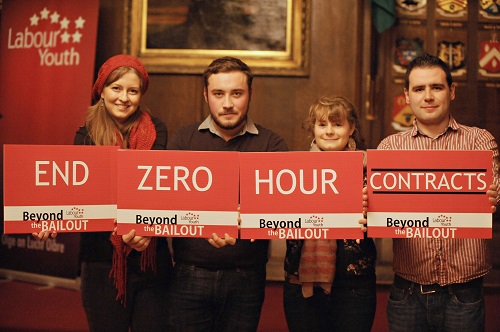
The Archbishop of Canterbury, Justin Welby, has denounced an increasingly prevalent working relationship as “evil.” However, a new report shows the condition he abjured as immoral has been exacerbated by another economic practice that he favors and advocates – that is, by the archbishop’s standards, his fiscal advice inadvertently increases “evil.”
Archbishop Welby made headlines last October for a speech in which he excoriated Amazon for not paying a “real living wage” and calling zero-hour contracts “an ancient evil.”
As it turned out, Church of England parishes offered zero-hour contracts and jobs that paid less than the living wage, both directly and indirectly through their significant investments in Amazon. Nonetheless, Abp. Welby has had a long history of advocacy on behalf of both issues.
On the eve of the 2015 general election, he and his fellow bishops issued a 52-page pastoral letter (titled “Who is my Neighbour?”) noting that “the Church of England has backed the concept of the Living Wage,” because it “represents the basic principle that people are not commodities and that their lives cannot adapt infinitely in response to market pressures.” Last September, Welby joined calls for officials to crack down on business owners who fail to pay the living wage.
As early as 2013, Welby said a living wage is “something we should be shouting about.” (Jesus prioritized a different message when raising our voice.)
This is to say, he has been nothing if not consistent. However, the laws of economics are equally steadfast.
When employers must raise wages, they control costs by offering fewer hours to workers (or hiring fewer workers). The result is the rise of zero-hour contracts, the “ancient evil” Abp. Welby has sought to exorcise from the UK’s body politic.
Economists at London School of Economics’s Centre for Economic Performance found a causal link between the two policies. Ryan Bourne, a scholar at the Cato Institute, writes that the paper found:
Firms reacted to the minimum wage rise for over-25s by replacing some fixed hours jobs with ZHCs. … According to their calculations, a domiciliary worker doing care in individuals’ homes and earning the minimum wage saw, on average, a 7.5 [percent] increase in their wage rate, but a 4.3 [percent] increase in the probability of being on a ZHC.
Yet this effect was not limited to social care. Their analysis combining all low-paid sectors gave a similar conclusion.
The two trends, Abp. Welby’s desire to raise minimum wages and his desire to guarantee hours, are at odds with one another:
Minimum wage rises appear to come with big trade-offs on worker job security, even when firms don’t react by directly cutting employment or hiring levels. This suggests the number of ZHC workers would be much lower today had the minimum wage not been increased significantly since 2010.
Zero-hour contracts, which are more prevalent in the UK, would be familiar to anyone who has ever freelanced: The employer makes no guarantee of a minimum number of hours, work, or pay, and the jobs have no benefits. However, most ZHCs offer flexibility and give the worker the right to work on his or her own schedule. (Some, though far from all, ZHCs require a worker to be available on call, and shifts can be canceled with little notice.)
It’s certainly true that the number of workers on zero-hour contracts has increased significantly, from 585,000 in 2013 to 844,000 last December, according to the most recent figures released by the UK’s Office of National Statistics.
What is not clear is that this is “evil.”
Workers on zero-hour contracts were nearly twice as likely to be satisfied with their job as those on a regular contract, according to the first major study of zero-hour contracts by the Chartered Institute of Personnel and Development (CIPD) in 2013. A follow-up study in 2015 found the satisfaction gap had narrowed as the economy improved, but workers on ZHCs were still happier than those on fixed-hour contracts.
Moreover, the ONS found that nearly two-thirds (64 percent) of workers on ZHCs do not want to work any additional hours.
This makes sense, as nearly one-third are young workers, and one-in-five is in school. ZHCs offer an invaluable way for them to begin a life of work while juggling college (and, let’s be candid, social) demands.
Zero-hour contracts could increase family cohesion and advance women’s rights. Multiple surveys have found that most new mothers would prefer to stay at home or work part time, rather than work at a full-time job. Flexible jobs with limited hours, rather than taxpayer-funded universal child care schemes, would meet the expressed wishes of mothers.
After comparing the perception of ZHCs with the experience of those who live on them, a CIPD spokesman said, “The use of zero-hours contracts in the UK economy has been underestimated, oversimplified and, in some cases, unfairly demonized.”
In some cases, literally demonized.
(Photo credit: Labour Youth. This photo has been cropped. CC BY 2.0.)

